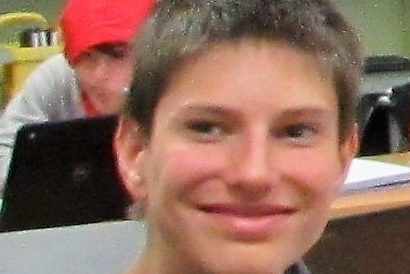What if a subtle sound—like fluorescent lights buzzing—passed through your ears like a squadron of jet engines? Imagine sitting at your office desk or in a classroom with that kind of cacophony. Alternately, what if your hearing inexplicably hit the mute button? Imagine gathering verbal instructions or communicating with peers.
As a young child, Michael S. experienced this kind of intense sensory processing disorder. As a result, he was home-schooled. His mother hoped to minimize the discomfort and distractions of a classroom while maximizing his learning potential. Michael worked his way through the DVDs, assignments, and tests prescribed through the Abeka Academy. Most days, the lessons went well. Other times, when the concepts were trickier, all the unanswered questions frustrated him. If only he had a real teacher or tutor…
“There definitely were downsides because you couldn’t ask questions, or if you didn’t understand something, then…you know…” Michael shrugs with resignation.
When Michael turned 12, his education hit the pause button. Life took a topsy-turvy turn and he relocated from Farmington, New Mexico, to live with his older sister in Durango. He made several attempts to resume his studies, but often felt overwhelmed. How could he ever catch up?
“It wasn’t looking good for me even two years ago, educationally,” he confesses.
Then, in August of 2018, he rummaged around the internet searching for available GED classes and very quickly found the Durango Adult Education Center.
“I’m not sure what I expected, but it was amazing here,” Michael smiles. “I didn’t expect it, but I loved math. And my most favorite [subject] was social studies. I loved studying political economics systems and different things like that.”
He also had to adapt to the classroom environment. He explains, “I wasn’t used to it being kind of loud in the classroom while trying to work.” His sensory disorder had decreased over the years, but it was not entirely gone. His teachers found creative workarounds. For instance, Michael could leave the classroom to complete his assignments in a quiet study room.
Thanks to the Center’s generous class offerings, Michael attended classes eight times a week by attending both the morning and night classes. He accelerated through the curriculum and, having passed all his GED subject tests, graduated in December at the age of seventeen.
Emboldened by his newfound passions, Michael fantasized about college. But…how could he make that prospect a reality given his age, its legal restrictions, and his unique sensory processing?
“College is always an option. It’s just finding the right college and the situation that fits [the student’s] lifestyle and needs,” says Sierra DiMarco, DAEC Career Advisor. “It’s surprisingly complex, but I don’t ever let people give up hope. I’m like: we can do this! But we just have to take these steps to get there.”
To help students take those steps, Sierra provides students a host of resources through the the BOOST program.
Building Opportunities and Occupations for Self-sufficient Transitions (BOOST) services are available to all DAEC and CAEC students. The program is designed to boost students beyond the barriers preventing them from attending classes, learning English, earning a high school equivalency, or advancing careers. While the “boost” concept is self-explanatory, its interventions are almost too diverse to articulate. Besides advising, BOOST services include financial assistance, career exploration, and support and referral services all geared to help people attain financial independence.
“That’s the cool thing about the BOOST program,” Sierra says. “There’s nothing we won’t do for our students.”
Generally, helping students find a viable pathway into college begins with lots of wraparound support including meeting to discuss the student’s needs and goals, plotting application deadline reminders on calendars, and weekly check-ins over email, the phone, or in person. “Sometimes,” Sierra points out, “my students come in and say, ‘this is scary’ and we talk about it. We talk about those fears and resolve them.”
For Michael, having an advisor to help navigate the college search and financial aid applications is a huge relief. With BOOST backing his every move, he can now see his future unfold. Perhaps he’ll get a degree in economics—with a minor in history. Maybe he’ll go on to work in finance or accounting. He can also imagine traveling to foreign countries, taking in all the exotic sights, smells, tastes, textures, and sounds.
“I would definitely encourage [others] to come to the Durango Adult Education Center,” Michael says. “There are great classes here and great teachers! It’s a great learning environment.”
As it turned out, by finding the DAEC, Michael found more than a few GED classes. He found the teachers and tutors he’d always wished for. He found friendship with his classmates. He found the place to ask all his buzzing questions. Best of all, he found a quiet workspace where he could finally hear—loud and clear—what was in his own heart.
For more information about the BOOST program, contact Sierra at sdimarco@durangoadulted.org.



